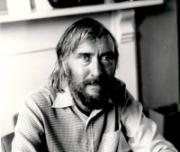|
|
||||||||||||||||||||||||
 |
Featured person
Recently added |
Henry Miller (1809 - 1888): |
||||||||||||||||||||||
Henry Miller was a highly successful Ulster-born financier who rose to become one of the richest men in Australia; he was also a member for many years of the Legislative Assembly of the State of Victoria. Such was his wealth that he acquired the sobriquet “Money” Miller.
He was born in Londonderry, son of Henry Miller (sometimes spelt Millar), a clergyman’s son who joined the army at age 14 in 1799, and saw service in the Peninsular War, the War of 1812 against the United States, and finally at Waterloo. After the Napoleonic Wars, Miller père’s regiment was part of the army of occupation in France, and Miller fils received part of his education in Paris. In 1823 Miller took his family to Sydney with a detachment of his regiment in charge of convicts and in August 1824 he became the first commandant at Moreton Bay, Queensland, a penal colony then, a highly popular tourist destination today. In 1825 together with Peter Bishop and Major Edmund Lockyear he explored the Brisbane river and was involved in the early development of what is today Australia’s third-largest city. He transferred to Tasmania in 1826.
In 1828 the younger Henry became a clerk in the Tasmanian Audit Office. After a visit to Port Phillip Bay in 1839 he resigned his post and settled in Melbourne (which is located in the bay). He soon began business as a financier and in 1845 as a merchant. In 1849 he founded the Victorian Fire and Marine Insurance Company, of which he was chairman, and in 1850 the first of a 'Union Terminating' series of building societies and was president of six of the seven he established. The leading promoter of the Bank of Victoria, incorporated in October 1852, he was chairman of directors until 1888. In 1859 he founded the Victorian Life and General Assurance Company. Claiming disingenuously that speculation was not in his nature, he avoided speculation in mining companies though his heavy exposure in rural and urban holdings and city properties were not those of a necessarily cautious player.
In 1851-56 Miller represented South Bourke, Evelyn and Mornington in Victoria's Legislative Council (its upper house). He was a very active member, pressing for a petition for a branch of the Mint in Melbourne, introducing (albeit unsuccessfully) a bill for a general system of education and serving on fifty-three select committees, including the one which framed the new Constitution. In the new Legislative Council he represented Central Province from November 1856 to April 1858 and then Western Province until 1866. In 1857 he had supported the government's railway scheme but opposed in vain the creation of a new insurance company. Few believed that his opposition centred on the concept of limited liability status which he had previously championed, but rather that his monopoly would be broken by the proposed company. He was appointed minister for trade and customs from March 1858 to October 1859 and in July 1866 Vice-President of the Board of Land and Works, commissioner of railways and roads, and representative of the McCulloch ministry in the Legislative Council. Public comment was adverse on this “about face”. His acceptance of such posts alienated from his electoral support and after he failed at the polls in January 1867 he retired from politics.
Miller was regarded as rather lees than honest: after his death, in July 1888 the Imperial Review, paid him a double-edged compliment when it opined that no illegality could be pinned on him because he always observed the law. For example, when Minister of Customs he was alleged to issue permits readily to his own firms but tardily to all others. But he was undoubtedly a brilliant investor: After Duffy's Land Act 1862 he founded a Free Selection Land Investment Society to help those who joined for 15 shillings to pay off a mortgage by monthly instalments; however, there were fines for non-payments for two months' default or a debt of £6. Miller allegedly acquired a fortune through this one venture. Also, he built up an impressive portfolio of urban and rural property; the wealth this brought permitted him to take up eighty per cent of the £50,000 loan floated by the Corporation of Melbourne for public works in 1868. and gave £5000 to St Paul's building fund in 1881. It was his quiet and highly successful pursuit of wealth which earned him his nickname, of “Money Miller”.
He fell seriously ill in 1887, suffering paralysis. He died on 7 February 1888 at his thirty-acre property, “Findon” at Kew and was buried in the Melbourne General Cemetery. His sobriquet was not inappropriate: his real and personal estate was valued in New South Wales at £163,817, and in Victoria at £1,456,680.
At Trinity Church, Hobart, on 11 November 1834 he married Eliza Mattinson with whom he had four sons and three daughters; one of these sons, Edward (1848-1932), served for twenty years in the Legislative Council, in 1917 earning a knighthood. He enjoyed a rather cleaner reputation than his father but was not so rich, leaving estate valued at “only” £104,669 - approximately £5,350,000 in 2012, whereas Henry Miller's real and personal estate had been eventually sworn for probate for sums which would represent many tens of millions in modern values.
| Born: | 30 December 1809 |
| Died: | 7 February 1888 |
| Richard Froggatt |
| Acknowledgements: Professor Sir Peter Froggatt |
| Bibliography: Mellon Centre for Migration Studies, County Tyrone; Australian Dictionary of Biography |


Home | Our Policies | Plaques | Browse | Search | Sponsors | Links | Help | Contact
Privacy & Disclaimer | Cookie Policy | Site Map | Website Design By K-Point
© 2024 Ulster History Circle









